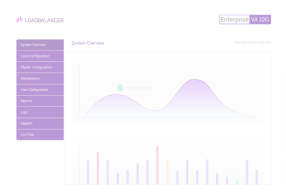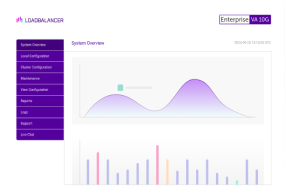
I recently had the opportunity to work with students from Southampton Solent University, which is local to our UK headquarters. The project: load balancing!
We've sponsored tech community events before (like when we sponsored a local hackathon), but this was our first time working with an educational institution. This was part of Solent University's industrial consulting project: a course module enabling students to work on a group project set by a sponsor in the IT industry.
The Mission
An intro video and project brief set the scene for the student group. Their mission, should they choose to accept it (spoiler alert: they did) was to propose how to use load balancing to make a fictional web application highly available and to avoid downtime. To achieve these goals, the group had to:
- become familiar with the key concepts and technologies of load balancing;
- build a proof of concept deployment to show load balancing in action;
- and prepare a report and presentation outlining their work and general conclusions.
The Results
Armed with suggested tools and reference material, the group got to work. They compared the ease of use of purely free and open-source load balancing solutions to commercial ones, explored different load balancing methods, and investigated how to meaningfully test the health of a load balanced application. They also looked at load balancing stateful versus stateless applications, going as far as building a containerized test web application with a stateless back end. I was rather impressed!
The group built a proof of concept load balanced environment, using tools including Xen, pfSense, Docker, Redis, Selenium, Apache JMeter, Nginx, and a virtual Loadbalancer.org appliance, which they put through its paces. They went on to create a minimum viable product which demonstrated what they'd learnt about load balancing. The final assessment took the form of a formal written report and a presentation, outlining their testing and findings.
The finished work surpassed my expectations, going beyond the initial project scope and exploring some interesting avenues in the process. A big well done to all the students involved.
Why outreach matters to us
As a tech company, we have a social responsibility to help train and inspire the next generation of engineers and developers. Local projects like this are the start of that story. Hopefully, the students involved picked up some useful knowledge about load balancing, and gained experience which is likely to be useful at some point in their future careers.
Outreach is an area we're working to expand in the future, and if this project was any indication then things are off to a great start.
















